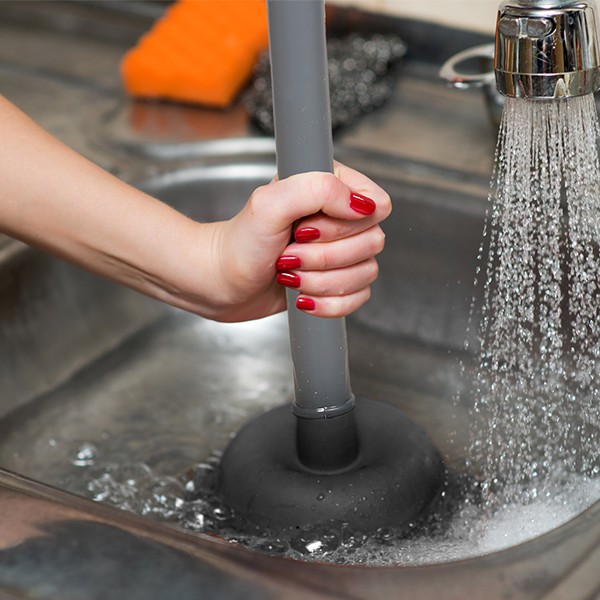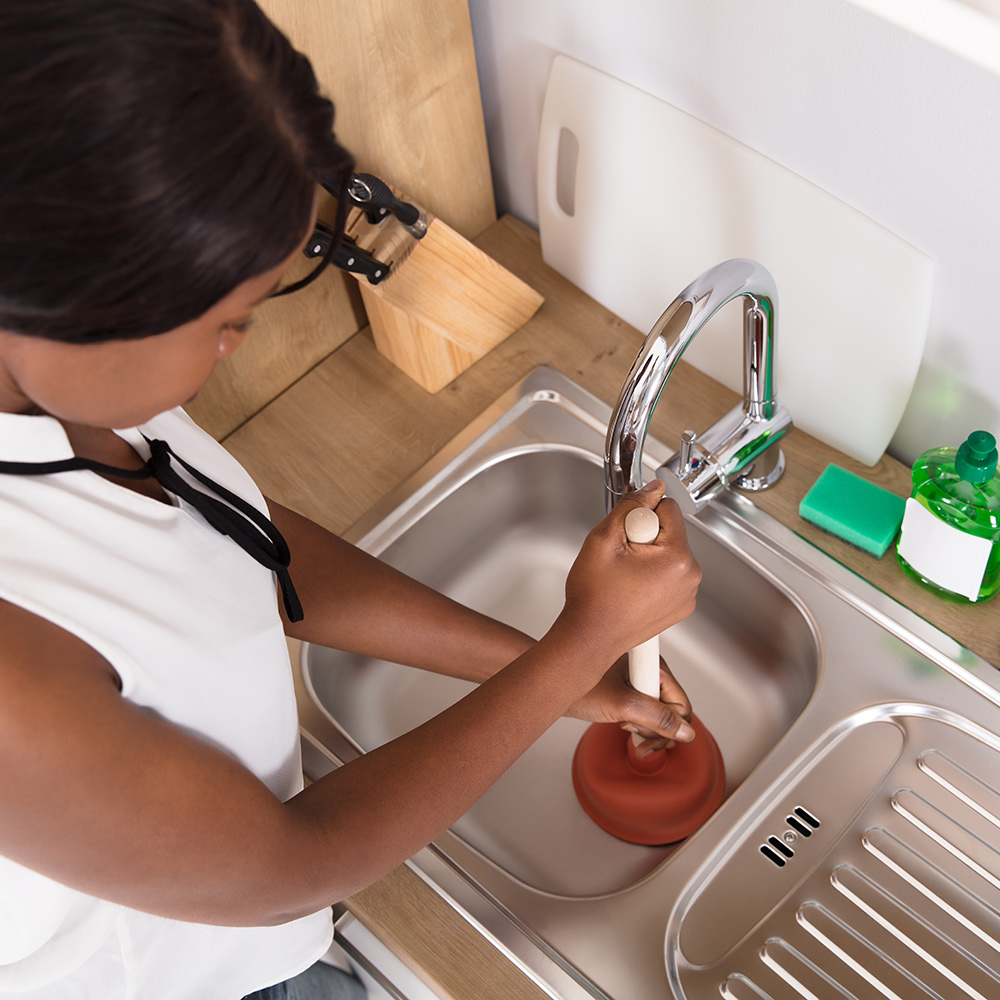How to Effectively Use Plungers and Drain Cleaner: Professional Advice
HereThey are making a number of good observations related to Tips on How to Effectively Use a Plunger as a whole in the article directly below.

Introduction
Correct maintenance of household drains is important for stopping blockages and guaranteeing smooth water flow. Among the secret tools in every home owner's toolkit is the plunger, alongside numerous drain cleansers developed to take on stubborn clogs successfully. This article discovers how to make use of plungers and drain cleansers efficiently to maintain your drains pipes streaming easily.
Section 1: Recognizing Bettors
Kinds of Plungers
There are several sorts of plungers readily available, each created for various kinds of drains pipes and clogs. One of the most common types consist of mug plungers, flange plungers, and accordion bettors.
How Plungers Work
Bettors work with the principle of producing stress and suction to dislodge clogs. When appropriately used over a drainpipe, they create a vacuum that can pull out debris or break up clogs.
Choosing the Right Plunger
Selecting the best plunger depends upon the sort of drainpipe and the nature of the clog. Cup bettors are perfect for sinks and tubs, while flange plungers are better fit for bathrooms due to their layout.
Typical Mistakes with Bettors
Avoiding these blunders makes sure effective plunging: inappropriate seal around the drain, not enough force, and unclear bordering debris.
Area 2: Using Plungers Successfully
Prep work
Before plunging, make certain the plunger covers the drain totally and creates a tight seal. Clear any type of visible particles around the drainpipe opening.
Method
Start with mild plunging movements to construct suction. Increase stress gradually, utilizing a constant rhythm. Repeat as required up until the drainpipe clears.
Fixing Tips
If plunging does not work, try changing the seal, using oil jelly for a far better seal, or using a different type of plunger.
Area 3: Understanding Drainpipe Cleaning Company
Types of Drainpipe Cleaners
Drain pipes cleansers can be chemical or chemical. Chemical cleaners use solid chemicals to liquify obstructions, while enzymatic cleansers use natural enzymes to break down raw material.
How Drain Cleaning Company Work
Chemical cleansers react with obstructions to dissolve them, while chemical cleansers break down organic materials like hair and oil without damaging pipes.
Security Factors to consider
Always wear gloves and eye security when making use of chemical drainpipe cleansers. Guarantee appropriate air flow and adhere to supplier guidelines carefully.
Eco-Friendly Alternatives
Think about utilizing vinegar and baking soft drink or enzyme-based cleaners for green options that are much safer for pipelines and the setting.
Section 4: Using Drain Cleansers Properly
Application Techniques
Pour chemical cleaners directly into the drain opening. Enable them to help the suggested time prior to flushing with hot water. Enzymatic cleaners ought to sit overnight.
Preventative measures
Stay clear of blending various kinds of cleaners, as this can produce harmful fumes. Never make use of chemical cleansers combined with a bettor, as splashing can occur.
Taking Care Of Persistent Blockages
For relentless blockages, consider utilizing a plumbing serpent or calling a specialist plumber to prevent damage to pipelines.
Verdict
In conclusion, comprehending exactly how to utilize plungers and drain cleaners efficiently is necessary for preserving healthy and balanced plumbing systems. By choosing the right tools and strategies, home owners can take on small clogs and avoid significant pipes issues down the line.
How To Properly Use A Plumbing Snake To Clear Drains
When any drain clogs in our home arise, we tend to gravitate toward the plunger and little else. In cases where the plunger and its vacuum-created pressure are not able to clear clogs, many immediately move to harmful chemicals or simply call their plumber to fix the issue.
we’re happy to help with all drain cleaning needs and concerns. This includes informing you on a few other home remedies you may have at your disposal for minor to moderate clogs, one of which is the use of a plumbing snake. Many people have never used one of these before – let’s go over the steps to take when your drain clogs and you have a plumbing snake available.
Attempt Plunger Use
The first step here, as we noted above, should indeed be to grab your plunger when you notice a drain clog and attempt to resolve it this way. If you’re unsure how to use a particular type of plunger, our plumbers can answer any questions you have. If this doesn’t do the trick, however, you move on to the snake.
Locate And Prepare Snake
A plumbing snake is a metal or plastic device that’s generally about a quarter of an inch thick. It’s design with significant extensions, meant to reach down into your clogged drain and push the clog out. Snakes also contain drain augers that will latch onto and push stubborn blockages.
If your plunger doesn’t clear a clog, locate your snake and bring it to the drain in question. We also recommend keeping a bucket nearby to collect the clog once you pull it out, plus we’d advise wearing goggles and possibly protective gloves.
Feed Snake
Once you’re ready to go, feed the snake slowly down the drain, using the crank device it comes with to keep it moving until it finds the clog. Once this happens, much of the clog will be latched onto the coil so you can pull it out, while the rest will simply break up and flow downward.
Detach Debris
Remove the snake slowly from the drain, and once you’ve done so, pick off any debris that’s stuck to the coil. This is another area where wearing gloves is a must.
Flush Drain
Finally, take a few minutes to ensure the snake has done its job correctly. If you’ve been using it on a toilet, flush the toilet a couple times and make sure everything flows well. If you’ve used it on a different drain, flush it with some room temperature water.
https://www.mybuddytheplumber.com/blog/how-to-properly-use-a-plumbing-snake-to-clear-drains/

Application Techniques
Pour chemical cleaners directly into the drain opening. Enable them to help the suggested time prior to flushing with hot water. Enzymatic cleaners ought to sit overnight.
Preventative measures
Stay clear of blending various kinds of cleaners, as this can produce harmful fumes. Never make use of chemical cleansers combined with a bettor, as splashing can occur.
Taking Care Of Persistent Blockages
For relentless blockages, consider utilizing a plumbing serpent or calling a specialist plumber to prevent damage to pipelines.
Verdict
In conclusion, comprehending exactly how to utilize plungers and drain cleaners efficiently is necessary for preserving healthy and balanced plumbing systems. By choosing the right tools and strategies, home owners can take on small clogs and avoid significant pipes issues down the line.
How To Properly Use A Plumbing Snake To Clear Drains
When any drain clogs in our home arise, we tend to gravitate toward the plunger and little else. In cases where the plunger and its vacuum-created pressure are not able to clear clogs, many immediately move to harmful chemicals or simply call their plumber to fix the issue.
we’re happy to help with all drain cleaning needs and concerns. This includes informing you on a few other home remedies you may have at your disposal for minor to moderate clogs, one of which is the use of a plumbing snake. Many people have never used one of these before – let’s go over the steps to take when your drain clogs and you have a plumbing snake available.
Attempt Plunger Use
The first step here, as we noted above, should indeed be to grab your plunger when you notice a drain clog and attempt to resolve it this way. If you’re unsure how to use a particular type of plunger, our plumbers can answer any questions you have. If this doesn’t do the trick, however, you move on to the snake.
Locate And Prepare Snake
A plumbing snake is a metal or plastic device that’s generally about a quarter of an inch thick. It’s design with significant extensions, meant to reach down into your clogged drain and push the clog out. Snakes also contain drain augers that will latch onto and push stubborn blockages.
If your plunger doesn’t clear a clog, locate your snake and bring it to the drain in question. We also recommend keeping a bucket nearby to collect the clog once you pull it out, plus we’d advise wearing goggles and possibly protective gloves.
Feed Snake
Once you’re ready to go, feed the snake slowly down the drain, using the crank device it comes with to keep it moving until it finds the clog. Once this happens, much of the clog will be latched onto the coil so you can pull it out, while the rest will simply break up and flow downward.
Detach Debris
Remove the snake slowly from the drain, and once you’ve done so, pick off any debris that’s stuck to the coil. This is another area where wearing gloves is a must.
Flush Drain
Finally, take a few minutes to ensure the snake has done its job correctly. If you’ve been using it on a toilet, flush the toilet a couple times and make sure everything flows well. If you’ve used it on a different drain, flush it with some room temperature water.
https://www.mybuddytheplumber.com/blog/how-to-properly-use-a-plumbing-snake-to-clear-drains/

I recently found that entry about A Guide to Plungers (and How to Use Them) while doing a lookup on the web. Those who liked our article if you please don't forget to pass it around. Many thanks for going through it.
Information Here